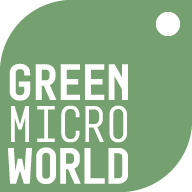transformative utilization of microbes
In the fast-paced world of the poultry industry, the utilization of microbes has emerged as a transformative approach to optimize various aspects of poultry harvest practices. Microorganisms, despite their minuscule size, are playing a pivotal role in improving poultry nutrition, enhancing gut health, and ensuring the overall productivity and well-being of birds. From broilers to layers, the integration of microbes is revolutionizing the way poultry is harvested and raised.
One of the primary areas where microbes have proven their worth is in poultry gut health. The intricate microbial communities inhabiting the digestive tract of birds have a profound influence on digestion, nutrient absorption, and immune function. Researchers and poultry professionals are leveraging this knowledge to manipulate the gut microbiota composition by introducing beneficial bacteria and yeasts. This approach helps establish a balanced microbial ecosystem, improving nutrient utilization, enhancing immune responses, and reducing the prevalence of harmful pathogens.
Microbial-based additives, such as probiotics and enzymes, have gained significant traction in the poultry industry. Probiotics, containing live beneficial microorganisms, aid in maintaining a healthy gut microbiome, bolstering the immune system, and improving overall performance. These additives can enhance nutrient absorption, mitigate the negative effects of stress, and support intestinal integrity in poultry. Enzymes, on the other hand, play a crucial role in breaking down complex feed components, enabling birds to extract maximum nutritional value from their diet. This leads to improved feed conversion efficiency, reduced feed costs, and minimized environmental impact.
Additionally, microbes are also employed in the management of poultry waste, addressing environmental concerns associated with the industry. Microbial-based waste management systems, such as anaerobic digestion, facilitate the breakdown of organic waste materials. This process not only reduces environmental pollution but also generates renewable energy in the form of biogas, which can be harnessed to power poultry facilities, further promoting sustainability.
In summary, the incorporation of microbes in poultry harvest practices represents a transformative approach in the industry. By capitalizing on the power of these microscopic organisms, poultry producers can optimize nutrition, enhance gut health, and improve overall productivity. The integration of microbial additives and waste management systems ensures the welfare of birds, reduces environmental impact, and promotes sustainable poultry production. As microbial advancements continue to progress, the poultry industry stands poised to reap the benefits of a more efficient, environmentally conscious, and economically viable future.
REQUIRE MORE DETAILS?
BENEFITS
Microbes, such as probiotics, can enhance the digestive process in animals. They help break down complex nutrients and make them more easily absorbable, leading to improved nutrient utilization and better overall digestion. This can result in enhanced growth, weight gain, and overall health for the animals.
Certain microbes, particularly beneficial bacteria, can stimulate and strengthen the immune system of animals. By promoting a healthy balance of gut microflora, these microbes help prevent the growth of harmful bacteria and reduce the risk of infections and diseases. This leads to improved animal health and reduces the need for antibiotics or other medical interventions.
Microbes can help animals better cope with stressful situations. They aid in regulating the animals’ stress responses and minimizing the negative impacts of stressors. This can be particularly beneficial in intensive farming systems or during periods of environmental changes or transportation, promoting animal welfare and reducing the incidence of stress-related disorders.
Using microbes and mycorrhiza in golf greens can have environmental benefits by reducing the need for synthetic fertilizers and pesticides, which can have negative impacts on the surrounding ecosystem. It can also improve soil health and reduce erosion, which can benefit nearby waterways and wildlife.
Microbes can enhance the efficiency of feed conversion in animals. They break down complex carbohydrates and fiber that are otherwise indigestible by animals, converting them into usable energy sources. This improves the animals’ ability to extract nutrients from their diet, resulting in better feed efficiency and reduced feed costs.

